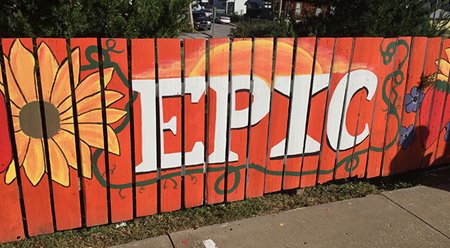Seven Key Principles
- Comprehensive community development is an intentional approach to creating a place of opportunity.
- Several core goals and strategies that improve lives and strengthen communities underlie comprehensive community development efforts.
- Every effort is unique and driven locally by residents and stakeholders.
- Robust comprehensive community development approaches are guided by a community-generated plan.
- No one can do it alone. Partnerships are essential.
- Strong, high-capacity organizations and community leadership are needed to lead and coordinate comprehensive community development efforts.
- Capacity and investment are required to achieve long-term change.
What does NeighborWorks America do?
- Grantmaking – NeighborWorks invests in high-impact strategies in communities across the country serviced by our network of nearly 250 locally-rooted nonprofit organizations. Through our network, we support communities to develop community visions and plans, engage stakeholders, measure impact, and advance best practices in the field.
- Capacity Building – NeighborWorks supports organizations engaged in comprehensive community eevelopment to connect with their peers through site visits and peer exchanges. We provide support to staff, residents, and partners to continuously strengthen and expand the network of individuals engaged in this work.
- Training & Professional Development – A leader in professional development in the affordable housing and community development field, NeighborWorks offers specialized training through webinars, in-person and on-line courses, place-based training, and our signature annual Community Leadership Institute.
Middle Neighborhoods
In partnership with the National Community Stabilization Trust and the national Middle Neighborhoods Steering Committee, NeighborWorks sponsors the Middle Neighborhoods Community of Practice. The Community of Practice is an informal, facilitated network of practitioners, researchers, and policymakers working in the field to strengthen middle neighborhoods. Middle neighborhoods are a category of neighborhoods that are neither clearly healthy and thriving, nor overtly distressed. Long seen as stable communities for middle- and working-class families, today many middle neighborhoods are on the edge of growth or decline. Learn more at middleneighborhoods.org.
Creative Community Development
 As part of comprehensive community development efforts, we sought to capture what art, culture and creativity can contribue to creating equitable and engaged communities. Learn more about our creative community development efforts and how NeighborWorks network organizations have incorporated arts to address community issues like gentrification, leverage partnerships and adapt to the unexpected.
As part of comprehensive community development efforts, we sought to capture what art, culture and creativity can contribue to creating equitable and engaged communities. Learn more about our creative community development efforts and how NeighborWorks network organizations have incorporated arts to address community issues like gentrification, leverage partnerships and adapt to the unexpected.

